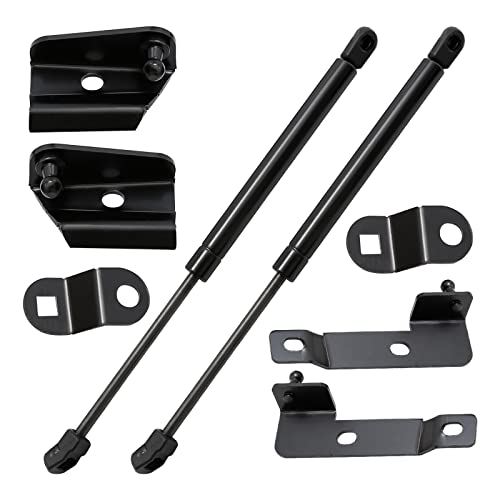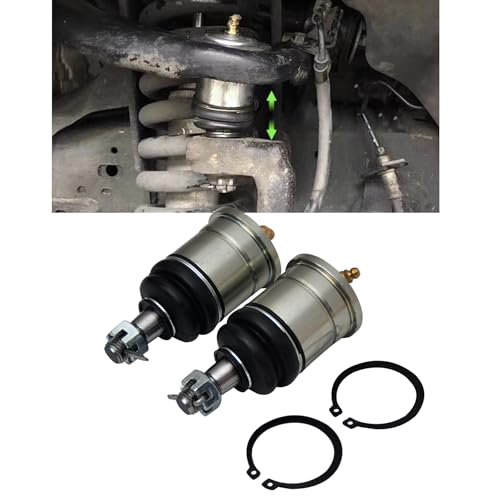A
ants_oz
Guest
Thought I would try to help people with info on vehicle modification.
There are plenty of traps out there for the unwary so here goes. I will edit this post as things come to mind over time.
Engineering:
This is a BIG topic and I hardly know where to start. Probably the basic rule to remember is that you can't get an engineer to approve something that is otherwise banned. For example, under ADR's there are maximum distances between wheel and guard (clearance) - an engineer cannot approve something outside those limits.
An interesting one is extended or flexible shackles. VSB14 (national guideline for light vehicle modifications) says they shall not be used. I haven't delved into the details for each State and Territory, but I know that in the ACT, that means without doubt, extended or flexible shackles are therefore illegal due to the way the ACT has implemented rules surrounding light vehicle modification.
Complexities between jurisdictions
A lot of people talk about how complex the rules are - I agree, they are. A lot of people say that they can't justify following the rules because they are different between different states and territories. I disagree. You only have a responsibility to ensure that your vehicle is roadworthy in the state or territory in which it is registered.
An example is my wheel and tyre combination. My standard tyres were 255/70R16. My current tyres are 265/75R16. In most states and territories that would make the vehicle unroadworthy (>15mm increase in diameter). But in the ACT, we have adopted VSB14 - which for offroad and commercial vehicles allowed up to 50mm increase in diameter. As long as I'm legal in the jurisdiction I'm registered, I'm legal everywhere.
Insurance - Damages (third party property, fire and theft, comprehensive):
This is a civil contract between you and your insurer to provide cover to some greater or lesser degree, for non0human damages in the event of an incident. There is no legal requirement for you to have this kind of insurance. If your vehicle is modified and you don't tell your insurer, in the event of a claim they may refuse to pay.
Insurance - Third Party (injury - along with your rego:
This one covers people - things that matter. There is a legal requirement for you to have this type of insurance along with registration.
If for example, you have a collision and someone is injured, their injuries and any follow on loss of income etc are covered by this insurance. But if your vehicle is modified to a degree which requires engineering approval and you haven't sought it, then in the event of an accident this insurance may be voided. The scary part is not that you may suffer, but that the other person who has been injured will suffer - their medical costs will not be covered, their loss of future income (which can easily amount to hundreds of thousands of dollars) will not be covered.
If I can, I would like to keep this thread running as a service to you all. If there is something I can cover in broad terms, please let me know and I will do my best. Bear in mind though, I am not an engineer, and I am not a lawyer. But I will do my best to try and help you see through the mess of rules if I can.
There are plenty of traps out there for the unwary so here goes. I will edit this post as things come to mind over time.
Engineering:
This is a BIG topic and I hardly know where to start. Probably the basic rule to remember is that you can't get an engineer to approve something that is otherwise banned. For example, under ADR's there are maximum distances between wheel and guard (clearance) - an engineer cannot approve something outside those limits.
An interesting one is extended or flexible shackles. VSB14 (national guideline for light vehicle modifications) says they shall not be used. I haven't delved into the details for each State and Territory, but I know that in the ACT, that means without doubt, extended or flexible shackles are therefore illegal due to the way the ACT has implemented rules surrounding light vehicle modification.
Complexities between jurisdictions
A lot of people talk about how complex the rules are - I agree, they are. A lot of people say that they can't justify following the rules because they are different between different states and territories. I disagree. You only have a responsibility to ensure that your vehicle is roadworthy in the state or territory in which it is registered.
An example is my wheel and tyre combination. My standard tyres were 255/70R16. My current tyres are 265/75R16. In most states and territories that would make the vehicle unroadworthy (>15mm increase in diameter). But in the ACT, we have adopted VSB14 - which for offroad and commercial vehicles allowed up to 50mm increase in diameter. As long as I'm legal in the jurisdiction I'm registered, I'm legal everywhere.
Insurance - Damages (third party property, fire and theft, comprehensive):
This is a civil contract between you and your insurer to provide cover to some greater or lesser degree, for non0human damages in the event of an incident. There is no legal requirement for you to have this kind of insurance. If your vehicle is modified and you don't tell your insurer, in the event of a claim they may refuse to pay.
Insurance - Third Party (injury - along with your rego:
This one covers people - things that matter. There is a legal requirement for you to have this type of insurance along with registration.
If for example, you have a collision and someone is injured, their injuries and any follow on loss of income etc are covered by this insurance. But if your vehicle is modified to a degree which requires engineering approval and you haven't sought it, then in the event of an accident this insurance may be voided. The scary part is not that you may suffer, but that the other person who has been injured will suffer - their medical costs will not be covered, their loss of future income (which can easily amount to hundreds of thousands of dollars) will not be covered.
If I can, I would like to keep this thread running as a service to you all. If there is something I can cover in broad terms, please let me know and I will do my best. Bear in mind though, I am not an engineer, and I am not a lawyer. But I will do my best to try and help you see through the mess of rules if I can.
Last edited:















